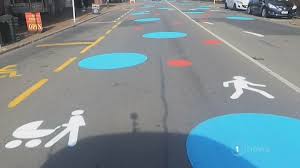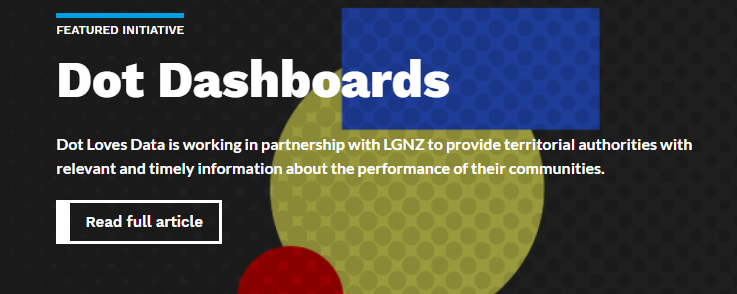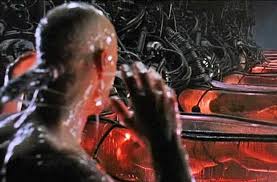“The Matrix is a system, Neo. That system is our enemy. But when you’re inside, you look around, what do you see? Businessmen, teachers, lawyers, carpenters. The very minds of the people we are trying to save. But until we do, these people are still a part of that system and that makes them our enemy. You have to understand, most of these people are not ready to be unplugged. And many of them are so inert, so hopelessly dependent on the system that they will fight to protect it….The Matrix is a computer-generated dream world, built to keep us under control in order to change a human being into this. [holding a copper-top D cell battery]” Morpheus The Matrix script 1999.
Mushroom management, also known as Pseudo-Analysis or Blind Development, is the running of a company where the communication channels between the managers and the employees do not work traditionally. The term mushroom management alludes to the stereotypical view of mushroom cultivation: kept in the dark and fed bullshit. An example of this is the current attempt to introduce water privatisation in Dunedin.
A move which replicates a general ripening of public infrastructure as government works with big business to privatise water infrastructure. It comes as big data and water are the new gold rush of the twenty first century. An era in which artificial intelligence, quantum math and the forth industrial revolution is changing the very fabric of people’s relationship with data and technology. At the heart of this evolution are the ideas of quantum state and quantum observable which are radically different from those used in previous models of physical reality to assess what constitute a quantifiable commodity or a resources net value .

“A technology upgrade could save Dunedin City Council commercial water customers cash”. Council 3 Waters contract delivery manager Chris Jones said the council was about to start a trial to upgrade water meters for ‘‘non-domestic, commercial customers’’ to new, smart, meters. The Scottish born Mr Jones previously worked for Fulton Holgan Sep 2013 – Dec 2017 until taking up employment with the DCC according to his LinkedIn profile where he“was responsible for business growth and development across multiple contracts in the Central Otago region specifically in the Water and Waste Water Operations and Maintenance space… including business growth and development”.
In August 2019 Auckland City Council signed a $2.4 billion construction partnership with Fulton Hogan and Fletcher Construction “for the delivery of water and wastewater infrastructure for Auckland over the next ten years.” This is part of a national infrastructure pipeline of $129b over the next 10 years.

Infrastructure New Zealand, which represents the industry, says the contract is a positive development for the wider sector as it guarantees long term tender contracts.
Finance Minister Grant Robertson in December, pre-Covid 19 crisis, outlined the Government plan to borrow $12 billion in extra infrastructure investment which coordinated with major public sector reform measures announced in November 2019.

It would replace the State Sector Act 1988, with the new Public Service Act. Under the new act, interdepartmental boards or “joint ventures” will be established to address high-priority issues, bringing together chief executives from relevant government agencies. “The boards will have the power and budgets to collaboratively deal with challenges such as reducing child poverty, improving mental health services and addressing climate change”. The boards would have the authority to employ staff and “enter into contracts”, and will report to a single minister.
Policies which all compromise the ‘value chain and policy sequence’ of public tender process as they exasperate the entry point that define corruption vulnerability.
![Keith Shorrocks Johnson [ Wellington New Zealand ]: Developing ...](https://postmanproductions.files.wordpress.com/2020/06/5863e-keith27spowerpoints2.jpg)
As for the idea of long term tender contracts “By committing to a long-term programme of work, rather than one-off projects, Watercare is giving the certainty that construction companies like Fulton Hogan and Fletcher Construction need to be able to invest in skills, drive efficiencies and innovate,” says the organisation’s chief executive Paul Blair.
In a post Covid 19 press release , made public in May 2019, the reason for infrastructure spending changed with Ministers Twyford (Transport) and Shane Jones (Infrastructure) now setting out the government’s intention for the construction sector including additional 3 billion plus borrowed for infrastructure rebuilding. The government’s plan comprised of the commencement of “advance payments to contractors engaged in government transport projects and an announcement that the government is considering significantly reforming Crown Infrastructure Partners (CIP)”. The government would speed up “the consenting process for key construction and infrastructure projects”. The goal of these announcements was “clearly outlined as a stimulation effort to mitigate the economic impact of the Covid-10 pandemic”.
So much for the value of efficiency and innovation.

“The details of the fast-tracked consent process are still to be put before Cabinet with specifics to be announced before the end of the lockdown. These initiatives and indications outlined by the government signal that construction and infrastructure will form a key component of the COVID-19 economic recovery; however, the role and extent of private sector involvement is unclear”.
Reduced consent needs, paper work fast tracked, shrunken accountability, billions in contracts paid up front, long term handshakes, greater ministerial powers. Oh it a good day to be a mushroom farmer, to have your snout in the tender trough. Especially with the right friends in the right place.

The Dunedin water metre trial will run for four to six months to evaluate the smart water meters performance “before a contract was awarded” said Mr Jones.
Mr Jones also stated the existing meters were due for replacement and the council was tendering for a request for proposals to identify potential suppliers and start a trial later this year.“said Mr Jones who outlined there was “a range of technology available and an ideal solution would provide a portal for customers who can track their water usage. Ideally, it would also give the DCC the ability to identify problems such as water leaks in real time so that they can be repaired quickly, preventing customers paying for water that they are not, in fact, using“

The DCC own website (photo left) shows tender for smart water meters awarded to Smart Water Metering Solutions in May of this year.
Tender dates on the DCC’s site for water smart meters show they were opened March 13th 2020, two weeks before lockdown and closed May 15 four days after restoration to alert level 2. Or 19 days before smart water metre trial were reported in the ODT. Like the dots on George St the reasons given for controversial infrastructure spending is the public well being. Meanwhile legislation, aimed at smoothing the privatisation of public infrastructure, picks up the pace reaching almost unstoppable juggernaut light speed.

In the case of the poka dots and 10km speed limit we find the real reason has little to do with responding to public needs or safety. It is in fact centred on assisting data collection. What the jargonists who write council spin report like call “societal needs”. More mushroom fodder which never identifies who society is (at less as its defined by the Department of Mushroom Stimulation) and whose to be billed by whom exactly for these identified “needs”.
Just like the moves to accelerate the private sectors take over of public works Poka dots were around pre covid 19. Though the current buzz word “social distancing“, now assigned as the reason for turning the main street into a giant twister board, had yet to become a vogue within mushroom farming circles. The catch phase for this “societal need” was originally called ‘tactical urbanisation’ instead. “Auckland- “tactical urbanism trials in Shortland Street (Polka dots) consultant Hamish Mackie facilitated discussion on problems, solutions and opportunities, the NZTA representatives advised that they were considering draft guidance and case studies to help develop funding processes before main- streaming could occur”. (Report on Trafinz Local Government Workshop 27 March 2019).
Polka dots have being around since 2018 in New Zealand while the phase ‘tactical urbanism’ was coined in New York in 2010 and is a term used to describe quick, cheap and often temporary projects that proponents of the short lived schemes say are their to “make a small part of a city more lively or enjoyable”. Auckland rolled out a trial of the polka dots on Shortland St in 2018 when safety concerns were raised about pedestrians trying to cross in that area well before calls were being made to widen foot paths post Covid 19.

LGNZ DotDash spells out the truh behind poka dots with …er poka dots. As their own website shows.
‘Tactical urbanisation’ is simply a fancy way of planing cities so they assist the data collection or Geospatial mapping needs.
Plan them not so much for the safety of the public and pedestrians, as is the public claim, but rather in reality for the benefit of property developing bean counters. Strategic planners have learned long ago that data is itself a marketable commodity which can be brought or sold.
Geospatial mapping uses spatial analysis techniques that employs tracking software (including phones, cameras, smart receivers) which process spatial data, and apply analytical methods to data basis to identify and predict trends for the needs of “your constituents or customers”
Dotdash so the LGNZ website declares is “able to track 34 variables such as consumer payments, benefits, unemployment, household income, housing affordability and education so you have a full picture of your community”.
Your driving at 10km an hour is not about public safer and pedestrian power. Rather it allows DOT Smarts to “access to public transport to generate a rank for every territorial authority. This allows us to understand traffic flow, regions that may need interventions and the ability to measure the success of interventions”.
Data is knowledge and knowledge has value.

Congratulation citizens you have all being turned into data mushrooms and the system plans to farm you silly. So even your mushroom farts have a trad-able crypto currency value. For big data is simultaneously about cypto currency generation or mining as it is about quantifying the net value of data and all form of energy trading. For in order to trade energy, smart meters are required to monitor any and all forms of energy creation, storage, or trading, be it carbon dioxide levels, fossil fuel consumption or water. As I said at the start the heart of this evolution are the ideas of quantum state and quantum observable which are radically different from those used in previous models of physical reality to assess what constitute a quantifiable commodity or a resources net value .
Data is the new king of currency. So get ready to burn your Edmund Hillary’s and bow down to golden sovereigns made of bytes of data 01010101.
And here is you thinking the Matrix was just a bit of light hearted escapism.Will buckle up skippy data is the new black powder and to win this ‘information war’ first you must achieve ‘information dominance’. The mass surveillance not just of individual people but entire societies and in fact everything you can name, dream, or have ever had a night mares about.
Reality ‘societal needs’ will alter before your eyes in this new normal. As technology changes from something that use to give us more freedom and time into something that now uses owns and farms us. Water meters unsurprising also met this criteria as they permit Geospatial mapping, that employs tracking software, to measure precise consumption of both resources and energy. And again this is not being done to save the public money and provide a better service regardless of what the mushroom farmers are telling the mushrooms.
Rather it being used to gauge how deeply the public can be gored, under the pretext ‘this will only hurt a little’ and ‘this is for the public good’. That at less is the conclusion one reaches when we compare the 2014 ODT article on water meter trials and why its being introduced in Dunedin against the reason then outlined later in May 2020 ODT article on the same topic.

The May 2019 ODT article (which appears to be based on a DCC press release) by Chris Jones says the trial is listed in the Government Electronic Tender Service.
He states that “the request for proposal contract would identify, test and approve a set of smart meters and connectivity components; ensure the system provides real-time data; and ensure that it aligns with the council’s existing billing regime. Potential suppliers had until July 10 to respond, and once options were considered, a preferred supplier would be chosen and the trial would probably begin before the end of the year”, Mr Jones said.
Though of course that is some what confusing as the DCC own website seems to suggest water smart tenders have in fact already closed and the tender option selected. Having being listed on the DCC tender list on the eve of the lockdown two month ago.


The tender is listed as Smart Waters Metering Solutions.
When those words are entered into Google and matched with the key words ‘Dunedin’ Murray Barnes Menzies Water Resources Consulting Group emerges.
Menzies is a former director at Tonkin & Taylor.
In May Tonkin +Taylor, published a policy brief on the role of big data and shaping society. Are we there yet? The transition from response to recovery for the COVID-19 pandemic Integrated Research on Disaster Risk (IRDR), the CODATA TG on Disaster Risk Research in the ‘Journal of Progress in Disaster Science’.
The report written by former UN, World Bank, Federal Emergency Management Agency, midlevel bureaucrats suggests “recovery issues are mainly going to be dominated by politics,economics and social science. Necessary for an effective recovery, the pandemic response needs to be a holistic response, combined with an improved data ecosystem between the public health system and the community. We should also view this outbreak and our response to it as an opportunity to learn lessons and reaffirm our universal commitment to sustainable development and enhancing well being around the world. Keywords: COVID-19, disaster response, transition, recovery”

In the same time frame Tinnion-Morgan who worked for the same New Zealand-based transportation consultants who brought us “tactical urbanisation” and poka dots was outed for corruption involving mass transport Word Bank financed projects in Vietnam.
British-born James Tinnion-Morgan,was debarred for six years and is now deemed ineligible to participate in World Bank-financed projects during the debarment peroid.
Tinnion-Morgan improperly influenced the tendering processes under the two World Bank-funded projects, solicited bribes, and failed to disclose his business relationship with a bidder. These are “collusive, corrupt, and fraudulent practices,” the World Bank said. Tinnion-Morgan according to this Linkedin profile also worked for New Zealand-based transportation consultants Tonkin + Taylor, Menizes former company. T+T state they were unaware of any tender fraud by Tinnion Morgan until the World Bank May 18 media release covering the 2013-2016 frauds which pre-dated his employment with Tonkin + Taylor.
POST SCRIPT Put this blog up on The Other Dunedin Website today and got immediately queried by journalist Hamish McNeilly. Turns out he was right with a section of this story having to be pulled after including an April 1st ODT story of water meters being introduced ad scrapped in 2014. The April 1st story was listed on the ODT online website as April 22nd. The ultimate joke here is water meters are now approaching a reality and fact is become the farce that the ODT once lampooned – met the new norm.
DEADLINE GAZETTE MAY 2020 CLICK HERE TO READ
OTHER WATER PRIVATISATION ARTICLES ON THIS SITE
Twisted Trickster & the Coca-cola Caper.
Water World
The Great Kiwi Water Heist